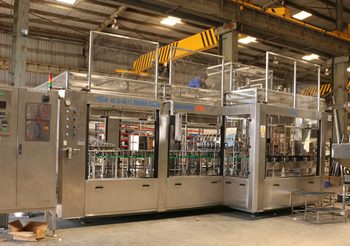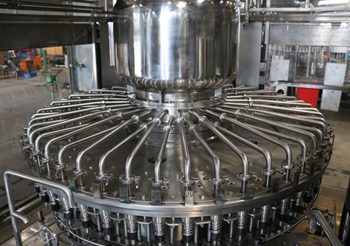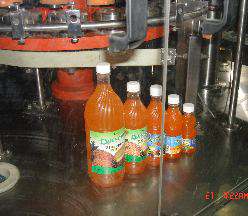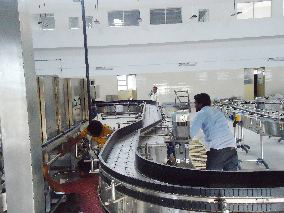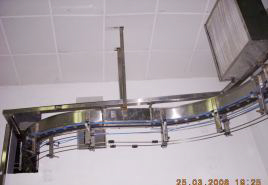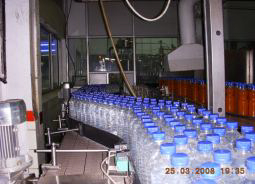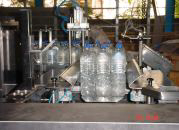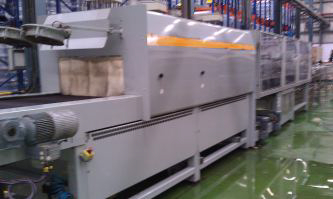
Introduction to eco-friendly machines
Welcome to our blog post on the benefits of using eco-friendly machines! In today’s world, where environmental concerns are at their peak, it has become imperative for industries to adopt sustainable practices. Traditional machines have long been known for their harmful impact on the environment, but fortunately, there is a solution – eco-friendly machines.
By making the switch to these innovative and conscious technologies, businesses can significantly reduce their carbon footprint while enjoying numerous other advantages along the way. From cost savings to creating healthier working environments, eco-friendly machines offer a win-win situation that cannot be ignored.
In this article, we will delve into the various benefits that come with embracing these environmentally friendly alternatives. We will also explore different types of eco-friendly machines and provide examples of how they are being successfully implemented in various industries such as agriculture, construction, and transportation.
So let’s dive in and discover why making the switch to eco-friendly machines is not only beneficial for our planet but also for businesses looking to thrive in an increasingly environmentally conscious world.
How traditional machines harm the environment
Traditional machines have been the backbone of industries for decades, powering our production and making our lives easier. However, we often overlook the negative impact they have on the environment. These machines typically rely on fossil fuels like gasoline or diesel, which release harmful emissions into the air when burned.
One of the biggest culprits is carbon dioxide (CO2), a greenhouse gas that contributes to global warming. Traditional machines emit large amounts of CO2 during their operation, exacerbating climate change and its associated problems such as rising temperatures and extreme weather events.
Another environmental concern is air pollution. The combustion of fossil fuels produces pollutants like nitrogen oxide (NOx) and particulate matter (PM), which can be detrimental to both human health and ecosystems. These pollutants contribute to respiratory illnesses in humans and harm plants and animals through acid rain or direct exposure.
Furthermore, traditional machines consume significant amounts of energy, leading to increased demand for fossil fuels. This extraction process not only depletes natural resources but also damages delicate ecosystems through mining operations.
In addition to these environmental concerns, traditional machines are noisy and can create disturbances in residential areas or wildlife habitats. This noise pollution disrupts natural cycles and has adverse effects on animal behavior patterns.
It’s clear that continued reliance on traditional machines poses numerous risks for our planet’s well-being. As we move towards a more sustainable future, it becomes crucial to explore alternatives that minimize these harmful impacts while still meeting industrial needs efficiently
Benefits of using eco-friendly machines:
Benefits of using eco-friendly machines:
Reduced carbon footprint
One of the key benefits of using eco-friendly machines is the significant reduction in carbon emissions. Traditional machines, especially those that rely on fossil fuels, contribute to air pollution and greenhouse gas emissions. On the other hand, eco-friendly machines utilize clean energy sources such as solar power or electricity, which have minimal environmental impact. By opting for these sustainable alternatives, businesses can actively reduce their carbon footprint and contribute to a healthier planet.
Cost savings
In addition to being environmentally friendly, eco-friendly machines can also offer substantial cost savings in the long run. Although they may require a larger initial investment compared to traditional machinery, they often have lower operational costs due to reduced fuel consumption and maintenance requirements. Moreover, governments and organizations are increasingly offering incentives and grants for adopting green technologies, further offsetting the initial expenses.
Healthier working environment
Another advantage of using eco-friendly machines is creating a healthier working environment for employees. Traditional equipment can emit harmful pollutants such as exhaust fumes or noise pollution that negatively affect workers’ health and well-being. Eco-friendly alternatives eliminate or significantly minimize these hazards by utilizing cleaner energy sources or employing advanced insulation technology—promoting better air quality and reducing noise levels within workspaces.
By embracing eco-friendly machines across various industries like agriculture, construction, and transportation we pave the way towards sustainability while reaping numerous benefits along the journey!
A. Reduced carbon footprint
Reducing our carbon footprint has become a pressing concern in today’s world. As the effects of climate change become increasingly evident, it is crucial that we take steps to minimize our impact on the environment. One effective way to do this is by using eco-friendly machines.
Traditional machines often rely on fossil fuels, releasing harmful greenhouse gases into the atmosphere. This contributes significantly to global warming and air pollution. On the other hand, eco-friendly machines operate using renewable energy sources or generate lower emissions, thus reducing their carbon footprint.
By opting for eco-friendly machines, we can make a significant difference in mitigating climate change. These machines utilize renewable energy options such as solar power or electricity generated from clean sources rather than relying solely on fossil fuels. By shifting towards these sustainable alternatives, we can help reduce our dependence on non-renewable resources and decrease overall carbon emissions.
In addition to environmental benefits, using eco-friendly machines also offers economic advantages. While there may be an initial investment required to switch over to these machines, they often result in long-term cost savings due to reduced fuel consumption and maintenance expenses.
Furthermore, adopting eco-friendly machinery creates a healthier working environment for employees. Traditional machinery emits pollutants that can have detrimental effects on human health when inhaled regularly over time. Eco-friendly alternatives produce fewer toxic fumes and create cleaner work environments where workers are less likely to experience respiratory problems or other health issues associated with exposure to harmful substances.
Investing in environmentally friendly equipment not only helps combat climate change but also brings financial benefits and improves worker well-being. It’s time for businesses across industries to recognize the importance of reducing their carbon footprint through the use of these innovative technologies.
B. Cost savings
Cost savings is one of the major advantages of using eco-friendly machines. While there may be an initial investment in purchasing these machines, the long-term savings can far outweigh the upfront costs.
Eco-friendly machines are designed to be energy-efficient, which means they consume less power compared to traditional machines. This results in lower electricity bills for businesses and individuals alike. By reducing energy consumption, companies can significantly cut down on their operating expenses and increase their profit margins.
Moreover, eco-friendly machines often require less maintenance and repairs compared to their conventional counterparts. They are built with durable materials and innovative technologies that enhance their lifespan and minimize breakdowns. As a result, businesses spend less money on repairs and replacement parts.
Additionally, some governments offer incentives or tax credits for adopting environmentally friendly practices such as using eco-friendly machinery. These financial benefits further contribute to cost savings for businesses.
Utilizing eco-friendly machines not only helps protect the environment but also brings about significant cost savings for companies in terms of reduced energy consumption, lower maintenance costs, and potential government incentives.
C. Healthier working environment
C. Healthier working environment
When it comes to creating a sustainable workplace, one of the key benefits of using eco-friendly machines is the promotion of a healthier working environment. Traditional machines often emit harmful pollutants, such as carbon monoxide and particulate matter, which can have detrimental effects on the health of workers.
By switching to eco-friendly machines, businesses can significantly reduce these harmful emissions and improve air quality within their facilities. This not only protects the health of employees but also creates a more pleasant and productive work atmosphere.
Another aspect to consider is noise pollution. Traditional machines are known for their loud operation, which can cause stress and hearing damage over time. Eco-friendly machines are designed with noise reduction features that minimize sound levels, making the workplace quieter and more comfortable for workers.
Furthermore, eco-friendly machines often incorporate ergonomic design principles that prioritize employee safety and well-being. These machines are built with user-friendly controls and features that reduce physical strain on operators during use.
Investing in eco-friendly machines not only helps safeguard our planet but also creates a safer and healthier workspace for employees. By prioritizing environmental sustainability in business practices, companies can contribute to both worker satisfaction and overall productivity.
Types of eco-friendly machines:
Types of Eco-Friendly Machines:
When it comes to embracing sustainable practices, one key area where businesses can make a significant impact is by using eco-friendly machines. These innovative technologies are designed to minimize the negative environmental effects caused by traditional machinery. Let’s take a closer look at some popular types of eco-friendly machines that are making waves in various industries.
Solar-powered machines have gained popularity due to their ability to harness clean and renewable energy from the sun. From solar-powered water pumps used in agriculture to solar panels installed on construction equipment, these machines reduce reliance on fossil fuels and help combat climate change.
Electric vehicles and equipment have also become increasingly common as more companies strive for greener operations. Electric cars, trucks, and utility vehicles not only produce zero tailpipe emissions but also contribute to reducing greenhouse gas emissions when charged with electricity generated from renewable sources.
Energy-efficient appliances play a crucial role in minimizing energy consumption while still delivering top-notch performance. With cutting-edge technology like low-power mode options or automatic shut-off features, these appliances significantly reduce energy waste without compromising functionality.
By investing in eco-friendly machines across different industries such as agriculture, construction, and transportation, businesses can actively contribute towards creating a cleaner environment for future generations. Whether it’s utilizing solar power or adopting electric alternatives, these sustainable solutions offer numerous advantages over conventional machinery – reduced carbon footprint, cost savings through lower fuel consumption or electricity bills – all while providing a healthier working environment for employees.
Incorporating eco-friendly machines into daily operations is not just an admirable choice; it’s also a strategic move that benefits both the planet and businesses’ bottom line. As technology continues to evolve and improve efficiency even further, we can expect more exciting innovations in this space that will revolutionize industries worldwide. So why wait? Start exploring the possibilities of eco-friendly machines today!
A. Solar-powered machines
Solar-powered machines have gained significant popularity in recent years due to their numerous benefits for both the environment and businesses. These machines harness the power of the sun to generate energy, reducing reliance on fossil fuels and cutting down carbon emissions.
One of the key advantages of solar-powered machines is their ability to operate without emitting harmful pollutants into the atmosphere. Unlike traditional machines that rely on gasoline or diesel, solar-powered machines use clean and renewable energy from sunlight. This means they do not release any greenhouse gases or contribute to air pollution, making them a much more sustainable choice.
Additionally, solar-powered machines offer long-term cost savings. While initial investments may be higher compared to traditional equipment, the operational costs are significantly lower as there is no need for fuel consumption. Once installed, these machines can continue operating with minimal maintenance and zero fuel expenses, resulting in substantial savings over time.
Moreover, using solar-powered machinery creates a healthier working environment for employees. Traditional engines emit fumes that can be hazardous if inhaled over an extended period. With solar-powered alternatives eliminating such emissions entirely, workers are exposed to fewer toxins and enjoy improved air quality while performing their tasks.
Incorporating solar-powered machinery into various industries brings multiple benefits including reduced carbon footprint, cost savings in the long run, and promoting a healthier working environment. By embracing eco-friendly technologies like these, we can move towards a more sustainable future while also reaping economic advantages.
B. Electric vehicles and equipment
Electric vehicles and equipment are revolutionizing industries across the globe, offering numerous benefits for both businesses and the environment. By replacing traditional gasoline-powered machines with electric alternatives, companies can significantly reduce their carbon footprint and contribute to a greener future.
One of the key advantages of using electric vehicles is their zero-emission nature. Unlike conventional fuel-powered counterparts, these machines do not release harmful pollutants into the air when in operation. This makes them ideal for use in urban areas where pollution levels are already high. Additionally, by eliminating exhaust emissions, electric vehicles help improve air quality and promote better health for workers and communities.
Another benefit of electric equipment is its cost-effectiveness in the long run. While initial investment may be higher compared to traditional machinery, electric vehicles have lower operating costs due to reduced maintenance needs and cheaper electricity prices compared to fossil fuels. Over time, this translates into substantial savings for businesses while also contributing to a more sustainable economy.
Furthermore, electric vehicles offer quieter operations compared to traditional machines powered by internal combustion engines. This means less noise pollution in work environments or residential areas nearby construction sites or transportation hubs.
Incorporating electric vehicles and equipment into various industries brings multiple advantages – from reduced carbon emissions and improved air quality to long-term cost savings and quieter working environments. As technology continues to advance, it is essential for businesses across different sectors to embrace eco-friendly options that prioritize sustainability without compromising productivity or profitability.
C. Energy-efficient appliances
Energy-efficient appliances are revolutionizing the way we use electricity in our homes and businesses. These eco-friendly machines are designed to minimize energy consumption while still providing the same level of performance as traditional appliances.
One of the key benefits of using energy-efficient appliances is their ability to reduce electricity bills. By consuming less power, these machines can significantly lower your monthly energy expenses. This not only saves you money but also helps conserve valuable resources.
Moreover, energy-efficient appliances have a positive impact on the environment by reducing greenhouse gas emissions. Traditional appliances often rely on non-renewable energy sources like coal or natural gas, which contribute to climate change. In contrast, eco-friendly machines utilize innovative technologies that maximize efficiency and minimize waste.
Another advantage of energy-efficient appliances is their longer lifespan compared to conventional models. These machines are built with high-quality materials and advanced engineering techniques, making them more durable and reliable over time. This means fewer repair costs and less frequent replacement, further adding to cost savings in the long run.
In addition to financial benefits, using energy-efficient appliances also creates a healthier living environment for both individuals and communities at large. Many traditional appliances emit harmful pollutants into the air or release toxic chemicals during operation. Energy-efficient alternatives reduce these risks by minimizing emissions and utilizing safer materials.
By choosing energy-efficient appliances for your home or business, you’re not only contributing towards a greener planet but also enjoying significant cost savings in terms of reduced electricity bills and maintenance expenses. So why wait? Make the switch today!
Examples of eco-friendly machines in different industries:
Examples of eco-friendly machines can be found in various industries, where businesses are increasingly recognizing the importance of sustainability. In the agriculture sector, farmers are adopting innovative practices to minimize their impact on the environment. This includes using electric tractors and solar-powered irrigation systems that reduce reliance on fossil fuels.
In the construction industry, companies are turning to eco-friendly machinery for their building projects. Construction equipment such as electric cranes and hybrid excavators help decrease carbon emissions while still maintaining efficiency. Additionally, many builders are utilizing energy-efficient appliances like LED lighting and low-flow water fixtures in their constructions.
Transportation is another industry benefiting from eco-friendly machines. Electric vehicles have gained popularity as a cleaner alternative to traditional gasoline-powered cars. Companies are also investing in electric buses for public transportation services, reducing air pollution and noise levels in urban areas.
These examples highlight how different industries can integrate eco-friendly machines into their operations without sacrificing productivity or performance. By embracing sustainable technologies, businesses not only contribute positively to the environment but also set themselves apart as responsible entities committed to a greener future.
A. Agriculture
Agriculture is an industry that heavily relies on machines and equipment to increase efficiency and productivity. However, traditional farming practices can have a significant impact on the environment. The use of fossil fuel-powered machines in agriculture contributes to air pollution, greenhouse gas emissions, and soil degradation.
Fortunately, eco-friendly machines offer a sustainable solution for farmers. By transitioning to these environmentally friendly alternatives, farmers can enjoy numerous benefits while reducing their ecological footprint.
One example of an eco-friendly machine in agriculture is the solar-powered irrigation system. Instead of relying on diesel or gasoline generators to power water pumps, solar panels harness the energy from the sun to provide clean and renewable energy for irrigation purposes. This not only reduces carbon emissions but also lowers operating costs for farmers.
Electric tractors are another innovative solution in sustainable farming practices. These vehicles produce zero emissions compared to traditional tractors powered by diesel engines which contribute significantly to air pollution in rural areas.
Furthermore, using energy-efficient appliances such as LED lights or low-energy coolers in agricultural facilities helps reduce electricity consumption without compromising performance.
Investing in eco-friendly machines not only benefits the environment but also brings economic advantages for farmers. Lower fuel costs, reduced maintenance expenses due to fewer mechanical parts, and potential government incentives make these investments financially rewarding.
By embracing eco-friendly machinery solutions within agriculture operations, we can create a healthier ecosystem for both humans and nature alike!
B. Construction
Construction is a booming industry that plays a crucial role in our society. However, it also has a significant impact on the environment due to its heavy machinery and high energy consumption. That’s where eco-friendly machines come into play, offering numerous benefits for construction projects.
One of the key advantages of using eco-friendly machines in construction is their reduced carbon footprint. Traditional equipment often relies on fossil fuels, releasing harmful emissions into the atmosphere. In contrast, eco-friendly machines utilize alternative energy sources such as electricity or solar power, significantly reducing greenhouse gas emissions.
Not only do these machines help protect the environment, but they also contribute to cost savings for construction companies. By utilizing renewable energy sources like solar power or electric vehicles, businesses can reduce their reliance on expensive fossil fuels and save money in the long run.
In addition to environmental and financial benefits, eco-friendly machines also create a healthier working environment for construction workers. Traditional machinery produces noise pollution and exhaust fumes that can be detrimental to health over time. Eco-friendly alternatives operate quietly and emit fewer toxins, improving air quality at job sites.
When it comes to specific examples of eco-friendly machines in construction, there are several notable options available today. Electric excavators powered by lithium-ion batteries are becoming increasingly popular due to their efficiency and zero-emission operation. Similarly, solar-powered cranes offer an environmentally friendly solution without compromising productivity.
By embracing eco-friendly machines in the construction industry, we can mitigate environmental damage while enjoying various practical advantages such as reduced costs and improved worker well-being. It’s clear that sustainability should be a top priority when planning any construction project.
C. Transportation
C. Transportation
The transportation industry plays a significant role in our daily lives, but it also contributes heavily to pollution and carbon emissions. However, with the introduction of eco-friendly machines in this sector, we can strive towards a cleaner and greener future.
Electric vehicles have gained popularity in recent years as a sustainable alternative to traditional gasoline-powered cars. These vehicles produce zero tailpipe emissions, reducing air pollution and improving overall air quality. Furthermore, they are more energy-efficient than their counterparts, resulting in lower fuel costs for businesses and individuals alike.
In addition to electric cars, eco-friendly machines have made their way into public transportation systems as well. Electric buses are becoming increasingly common on city streets around the world. With reduced noise levels and no tailpipe emissions, these vehicles offer a quieter and healthier commuting experience for passengers while contributing to a cleaner environment.
Furthermore, the use of renewable energy sources such as solar power has revolutionized transportation logistics. Solar-powered charging stations provide an efficient way to recharge electric vehicles without relying on fossil fuels or adding strain to the electrical grid.
When it comes to shipping goods across long distances, eco-friendly machines like hybrid trucks or those running on biofuels can significantly reduce carbon emissions compared to traditional diesel trucks. This not only benefits the environment but also helps companies save money by cutting down on fuel costs.
By embracing eco-friendly machines in all sectors of transportation – from personal commutes to public transit systems and freight transport – we can make substantial progress towards mitigating climate change and creating a sustainable future for generations to come.
In conclusion (without explicitly stating so), incorporating eco-friendly machines into various industries offers numerous benefits that extend beyond just environmental preservation. From reducing our carbon footprint and saving money through improved efficiency to creating healthier working environments for employees – there is undoubtedly much value in adopting these innovative solutions today! So why wait? Let’s embrace the power of technology combined with sustainability for a brighter tomorrow!
